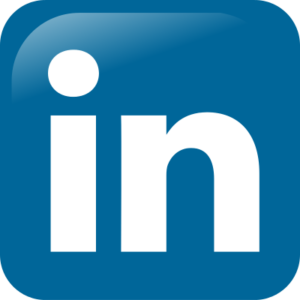by kwheele4 on February 4, 2021
Opinion
Writer vs. Writer: Is LinkedIn Ultimately Helpful or Harmful for Students?

Helpful
by Emily Ball ’22
Opinion Staff
As college students approach the end of their four years, they must begin to think about their future careers. Applying for internships and jobs is a difficult and tedious process that is made easier through the use of employment and networking services such as LinkedIn.
Some argue that LinkedIn is not helpful for students, but it is in fact a useful tool that provides an easy way to search and apply for jobs. Although it does not display job opportunities for every career path (for instance, medical fields and educational fields), it can be a very helpful platform for people who are interested in entering the business or creative fields.
LinkedIn can allow you to connect with people who attended your school, which is a valuable feature for students trying to network and make connections in the professional world. When you create your LinkedIn profile, you fill out a section about your education. From then on, every company and job you look at tells you how many people from your school are employed there. This feature is beneficial for students because they can create connections with people who share the same educational background and experience.
“During an internship search a couple weeks ago, I found a position I really liked but didn’t have any connections,” said Caroline Franks ’22. “I ended up finding an alumni that I knew that worked at that company through LinkedIn, and I messaged her. We set up a phone call, and she told me all about the position and made me very prepared for the interview. I really love the feature of connecting with alumni because it helped me with the internship process.”
If a job or internship application asks for an additional website, LinkedIn is the perfect link to include. Attaching a LinkedIn profile works as a supplement to the application that provides insight on additional accomplishments or accolades you have received.
LinkedIn is a strong first step for college students trying to enter the workforce. This tool shows how Friartown can extend beyond the borders of our campus as Friars continue to open doors, one connection at a time.
Harmful
by Madeline Morkin ’22
Asst. Opinion Editor
Whether professors require students to create a LinkedIn account or a student decides to develop one on their own, it immediately becomes a must-have for every college student. Early in their college career, this professional online platform is forced onto students as they are constantly reminded of the necessity of social networking and building professional relationships.
While the buzz around LinkedIn’s importance is loud, many students watch their semi-familiar connections, or network friends, succeed while they sit behind laptops—uncomfortable, lonely, and anxious because of their own lack of experience, professional employment, or prior successes.
LinkedIn is problematic in that it compels young, and often inexperienced, students to believe that finding a job or knowing what they are going to do in the future is a simple task. The site creates an anxiety-provoking environment wherein less certain site members constantly compare themselves to their more accomplished connections.
On a daily basis, students’ connections post about their acceptance into a new workplace, plans to start a new class, or successes as they enter into another full year with a particular company.
Just like other social media platforms, LinkedIn exposes today’s younger generations to strictly the best aspects of the lives of their “connections.” While other social media networks focus on the best of people outside the workplace, LinkedIn complements this practice by showing only the best of people’s professional lives. On this platform, students have access to any connection’s job experience, GPA, resume, skills and endorsements, number of connections, majors and minors, along with a whole list of other personal and professional information, as well as successes.
However, nowhere does the site provide a section for connections to view any bad qualities, worst habits, or unsuccessful employment history. So, students are left to focus strictly on other people’s best qualities and experiences, which are often greatly exaggerated.
Oftentimes, anxiety provoked by LinkedIn urges students to take jobs that they may not necessarily want to accept. Having a perfect first job or internship is oftentimes unrealistic, but students want one because their connections are constantly posting about a new job or internship that seems even better than their own. The reality is that these connections are likely not truthfully “extremely excited to join” their new workplace despite their post.
Ironically, through the constant bombardment of the professional and educational successes of others, LinkedIn often has the unintended consequence of making students feel worse about their current situation than they should.
One thought on “Writer vs. Writer: Is LinkedIn Ultimately Helpful or Harmful for Students?”
Comments are closed.